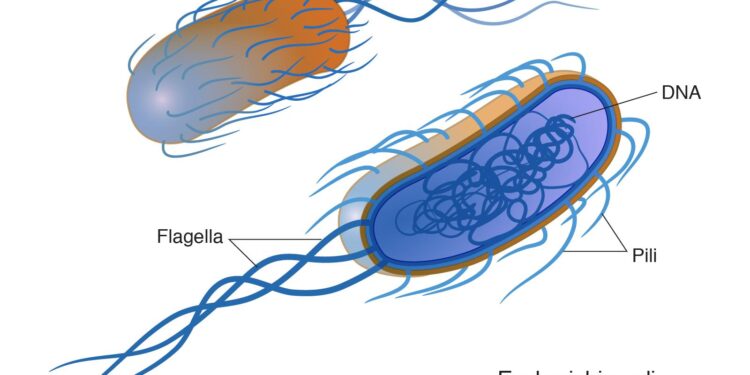Hidden Dangers in Dutch Coffee Shop Cannabis: A Call for Enhanced Safety Measures
Unveiling Contamination Issues in Cannabis from Dutch Coffee Shops
A recent investigative report by The Guardian has brought to light troubling levels of bacterial contamination and pesticide residues present in cannabis products sold across the Netherlands’ famed coffee shops. These establishments, long emblematic of the country’s tolerant stance on cannabis, now face scrutiny as consumer safety concerns escalate alongside rising marijuana use nationwide. This discovery not only challenges the current regulatory framework but also highlights potential public health risks that demand urgent attention.
Laboratory analyses have detected various contaminants at notable rates, underscoring systemic gaps in quality control:
| Type of Contaminant | Incidence Rate (%) |
|---|---|
| Bacterial Presence | 30% |
| Herbicide Residues | 25% |
| Pesticide Traces | 20% |
The findings have ignited calls from health experts and consumer advocates alike for more stringent oversight to guarantee that cannabis products meet rigorous safety standards before reaching users.
The Health Implications of Consuming Contaminated Recreational Cannabis
The detection of harmful bacteria such as Escherichia coli and Salmonella within cannabis samples is particularly alarming due to their association with severe gastrointestinal illnesses. Additionally, molds and fungal spores found on improperly cured or stored marijuana can aggravate respiratory conditions like asthma—posing heightened risks for vulnerable populations.
This situation mirrors concerns seen in other inhaled substances; just as air pollution exacerbates lung diseases, inhaling contaminated cannabis smoke may introduce pathogens or toxins directly into the respiratory system. Unlike food crops where pesticide residues are ingested orally, inhalation presents unique exposure pathways that remain insufficiently studied.
| Contaminant | Associated Health Risks | |
|---|---|---|
| E. coli Bacteria | Severe digestive infections and cramps | |
The widespread use of pesticides common in agriculture raises additional concerns about chronic exposure effects when these chemicals are combusted or vaporized during consumption. Emerging research links prolonged contact with certain pesticides to neurological disorders such as Parkinson’s disease and hormonal imbalances—highlighting an urgent need for comprehensive risk assessments tailored specifically to cannabis products.
A Path Forward: Strengthening Regulations & Quality Assurance Protocols for Cannabis Products
The revelations regarding contamination levels have galvanized industry specialists and public health officials to advocate for a robust regulatory overhaul aimed at safeguarding consumers within this expanding market segment. Key proposals include:
- Implementing mandatory routine screening procedures targeting microbial pathogens and chemical residues throughout cultivation, processing, and distribution stages;
- Requiring transparent product labeling detailing any detected contaminants along with associated health warnings;
- Establishing educational initiatives designed to train growers and retailers on best practices concerning hygiene standards and safe pesticide application;
- Enforcing strict penalties against entities failing compliance checks or engaging in unsafe production methods.
Taking cues from established agricultural regulations applied globally could serve as a blueprint—for instance, adopting testing thresholds akin to those used by European food safety authorities might drastically reduce hazardous exposures among consumers.
Recent data further emphasize this urgency:
| Contaminant Category | Detected Prevalence (%)< / th /> | Potential Health Consequences< / th /> < / tr /> < / thead /> |
|---|---|---|
| Bacterial Contamination | 30% | Infections; allergic responses < / tr /> |
| Pesticide Residues | 15% | Neurological impairments; increased cancer risk < / tr /> |
Cannabis Safety Must Become a Priority Moving Forward
The presence of bacterial agents alongside chemical pesticides within Dutch coffee shop marijuana represents a pressing public health challenge demanding immediate intervention. As consumer demand grows amid evolving legalization landscapes worldwide—including recent expansions across parts of Europe—the imperative remains clear: ensuring product integrity cannot be sacrificed at the altar of accessibility.
This investigation serves as a critical reminder that responsible governance requires collaboration between legislators crafting policy frameworks, scientific bodies conducting ongoing surveillance studies, healthcare professionals monitoring adverse outcomes—and industry stakeholders committed to transparency.
Looking ahead,stricter enforcement measures combined with advanced testing technologies will be essential tools. Only through such concerted efforts can we hope to foster safer consumption environments while preserving the progressive spirit underpinning Dutch drug policy reforms.
An ongoing dialogue between regulators,public health agencies, cultivators,and consumers will shape how effectively these challenges are met amidst an increasingly complex marketplace.















